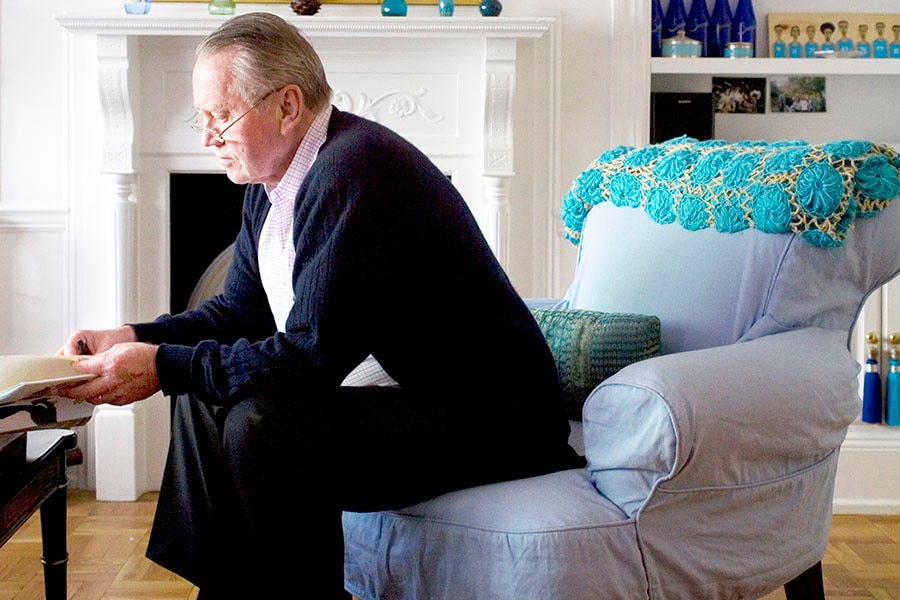
Chuck Feeney, the James Bond of philanthropy
In a tribute to the multi-billionaire who passed away this week, Amit Chandra, chairperson, Bain Capital India Office & Founder A.T.E. Chandra Foundation, recollects how the entrepreneur and philanthropist quietly donated everything before he passed away and how he continues to be an inspiration
 Charles F Feeney, an American businessman and philanthropist
Image: Liz O. Baylen/Los Angeles Times via Getty Images
Charles F Feeney, an American businessman and philanthropist
Image: Liz O. Baylen/Los Angeles Times via Getty Images
Charles F Feeney, or Chuck, as he was better known, was a unique man—one who comes along perhaps once in century. In a deeply troubled world, filled with hate and suffering, where people are constantly looking for inspiration, he stood out as a beacon of compassion, hope and change, using his incredible entrepreneurial success and wealth to change the course of lives of tens of millions of people across multiple continents. Then why is it that he is not a common name? Not widely celebrated as both a remarkable wealth creator and perhaps the most incredible philanthropist of the last century?
Let me answer by beginning with my chance intersection with Chuck’s story over two decades ago. It was 2002, and I was running investment banking for DSP Merrill Lynch when we led what was then one of the largest PE deals in the country—a $100m investment by General Atlantic Partners in Patni Computers. When I met with Steve Denning, its then chairman and my friend Abhay Havaldar, its India Head, there were references to the sources of the money they managed—particularly one really large and respected individual. My colleagues in Merrill Lynch told me that the firm was blue chip, highly respected, and worked well with partner companies, particularly those in the tech sector. It was about six years later that Abhay Havaldar sent me a book called Billionaire Who Wasn’t, about their founder, Chuck, and told me that given my interest in philanthropy, “you will really enjoy reading this”. Little did I know that the story behind General Atlantic would unravel, and more importantly, it would be a book that would result in an inflection point in my wife Archana’s and my life.
The book gave insights into Chuck’s very humble Irish American background, followed by a US military stint, and his value system. It explained how he was co-founder, in 1960, of a brilliant idea—Duty Free Shoppers (DFS), along with a fellow Cornell alumnus, Robert Miller. Intended initially to simply sell duty-free luxury items to US servicemen, it rode the post WW2 boom in international tourism which created a surge in global demand for duty-free goods. Over the coming decades, DFS grew into a hugely profitable enterprise, and in 1980 Chuck founded General Atlantic Partners to plow some of its huge cash flows into high growth businesses and support entrepreneurs like himself.
Chuck’s wealth had by now begun to multiply rapidly with it. By the time he had hit the age of 50, he had palatial homes in major cities across US and Europe, and was leading the high life expected of most billionaires. However, something, given his very humble origins and value system, began troubling Chuck and started making him question his prevalent lifestyle. He is quoted in his biography as saying he reached the conclusion that all the trappings of luxury had simply stopped appealing to him. At that point, Chuck had begun to think about the value of hoarding or spending the money, versus giving it away and making an impact on society.
What followed was something truly remarkable—in 1982 Chuck established the Atlantic Philanthropies, and two years later, in a stunning move, he transferred his entire stake in DFS to it. Simultaneously, he gave up his billionaire lifestyle for an almost Gandhian way of life. He kept only about $2 million for himself and his wonderful wife Helga, and moved into a small rental in San Francisco, also giving each of his children just a house and a very modest amount of money. The rest of it ALL was reserved, much to the surprise of lawyers, friends, and family, for charity.

















